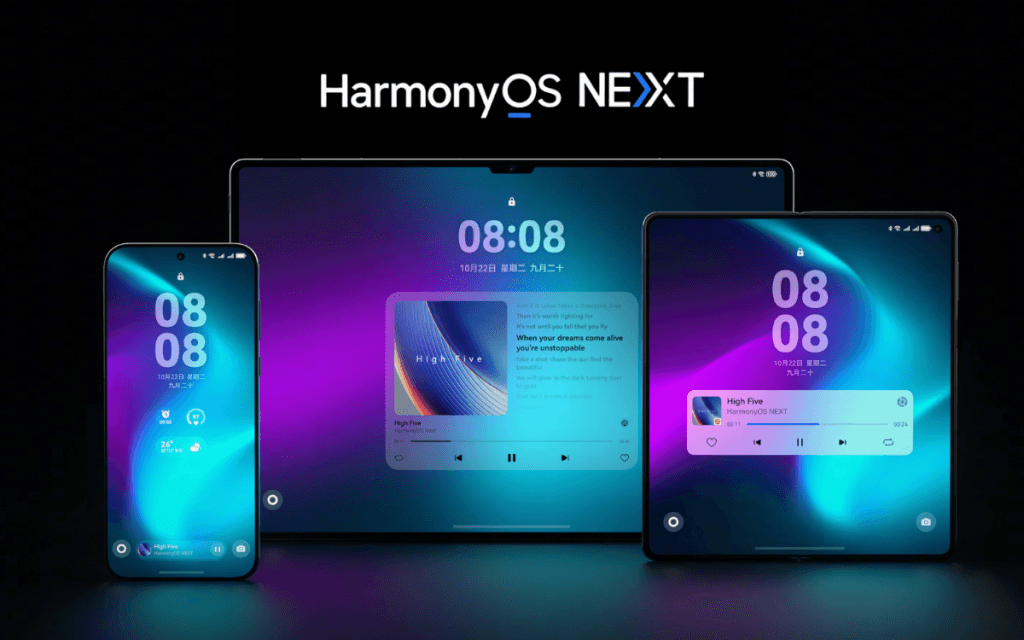In a surprising development, Huawei’s HarmonyOS has made significant gains in China’s smartphone market, presenting a real challenge to Android’s long-held supremacy. As per the newest findings from TechInsights, HarmonyOS’s market share grew from 13% to 15% in the third quarter of 2024, while Android’s market share fell from 72% to 70%.
A Shift in Market Dynamics
This isn’t the first instance of such a shift; in the first quarter of 2024, Huawei overtook iOS in market share for the very first time. However, at that moment, it was still integrated within the Android ecosystem.
Reasons Behind HarmonyOS’s Rise
Several factors are driving this growth. First, Huawei’s strong commitment to self-sufficiency, especially following US sanctions, has resulted in considerable investments in the development of HarmonyOS. Additionally, the recent debut of HarmonyOS Next, a completely independent operating system that no longer depends on Android applications, has further reinforced its standing. Moreover, the expanding ecosystem of native HarmonyOS apps and services, including a highly awaited Harmony-native version of WeChat, has made the operating system more appealing to consumers.
While Apple’s iOS has kept a stable 15% market share, it’s evident that the Chinese smartphone market is experiencing a competitive struggle among iOS, Android, and HarmonyOS. This evolution carries major consequences for the global tech sector, as it highlights the ability of alternative operating systems to challenge the entrenched duopoly.
Smartphone Shipment Trends
Regarding smartphone shipments, China is still the largest single market globally, with a 3% increase year-over-year in Q3 2024. Vivo held the top spot with a 19% market share, closely trailed by Xiaomi and Oppo/OnePlus, each capturing 15.5%. Honor, Huawei, and Apple completed the top six, with each around 15% market share.
As competition heats up among China’s leading six smartphone manufacturers, market concentration is increasing, posing difficulties for smaller brands. Nevertheless, the recovery of China’s smartphone market indicates robust demand and a more stable replacement cycle.
With its swift uptake and growth, HarmonyOS is set to transform China’s smartphone ecosystem, particularly as Huawei keeps introducing Harmony-native apps and services tailored for the Chinese audience. It will be interesting to see if HarmonyOS can maintain its growth and continue to chip away at Android’s market share in the upcoming quarters.


Leave a Reply